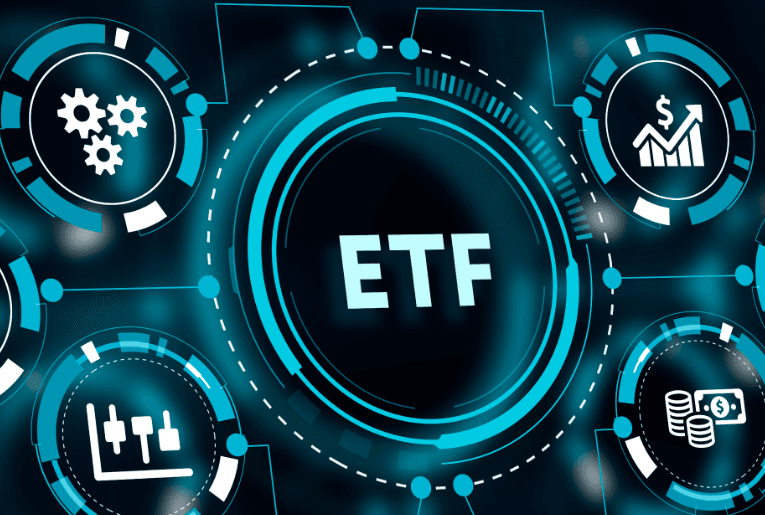What are Exchange Traded Funds? : Exchange-traded funds pool the monetary assets of a few groups and use them to buy different tradable monetary resources, for example, shares, obligation protections like securities, and subordinates. It is an engaging choice for financial backers with restricted ability in the securities exchange.
How Exchange Traded Funds (ETFs) Work?
Assuming you are considering what is an Exchange Traded Fund or how it works, as mentioned prior, ETFs share trademark elements of the two offers and common funds. They are for the most part traded in the financial exchange as offers delivered through creative blocks. ETF funds are recorded on all significant stock exchanges and can be traded according to necessity during the value trading time.
Changes in the offer cost of an ETF rely upon the expenses of the fundamental resources present in the pool of assets. Assuming the cost of at least one resource rises, the offer cost of the ETF rises proportionately, as well as the other way around.
Also Read:
The worth of the profit got by the investors of ETFs relies on the presentation and resource of the executives of the concerned ETF organization.
They can be effectively or latently made due, according to organization standards. Effectively oversaw ETFs are worked by a portfolio chief, later cautiously surveying the securities exchange conditions and undertaking reasonable courses of action by putting resources into the organizations with high potential. Latently oversaw ETFs, then again, pursue the directions of explicit market records, just putting resources into those organizations recorded on the rising charts.
There are a few benefits of putting resources into an ETF rather than deciding on common funds or portions of an organization.
Also Read:
Benefits and Disadvantages of ETFs
Benefits
Benefits over Investing in Companies: A Diversified Pool of Securities – Purchasing portions of an organization keep you restricted to the exhibition of that organization itself, exposing you to a more serious level of hazard. Then again, putting resources into exchange-traded funds permits you to keep your accounts spread overvalues of various organizations – weakening your danger altogether. Regardless of whether one resource fails to meet expectations in the pool of assets in an ETF, it tends to be remunerated by the remarkable development of other resources.
Benefits over Mutual Funds – One of the critical advantages of putting resources into an ETF over shared funds is the diminished costs. There are different charges engaged with shared funds, for example, section and leave load, the executive’s expenses, and so forth This builds your absolute expense caused, and thereby the complete cost proportion of shared funds. As ETFs are traded like offers in the securities exchange, its cost proportion is impressively lower.
Tradable security – Any progressions in the worth of an ETF can be noticed in a flash and can be traded all through the workday. In this way, we can reason that ETFs have a lot higher liquidity than shared funds. This empowers you to have adaptability in your decisions of contributing, permitting you to move to another security easily on the off chance that a particular resource isn’t producing satisfactory benefits.
Charge Friendly – ETF funds are more assessment well disposed than common funds. Despite the fact that both are exposed to capital additions expense and profit burdens, the general measure of expense charged on ETFs is a lot lower than the one required on common funds.
Inactively oversaw – Investing in ETFs is by and large safer than shared funds as they are latently made due. They just put resources into the best-performing organizations recorded in a particular stock exchange, while shared funds completely survey every one of the organizations with a potential for development. This subjects common funds to a more serious danger as recently shaped limited scope organizations have higher possibilities of causing misfortune.
Also Read:
Restrictions of ETF
ETFs have specific weaknesses which you ought to know about prior to putting resources into an ETF trading organization.
Financier charges and Demat account – Since ETFs are traded like offers, there are a few costs that must be brought about to buy them. This is for the most part done by the fund chiefs, who charge an ostensible commission expense for such exchanges.
You can likewise pick to execute without anyone else on the offer market and not include any fund directors all the while. A Demat account must be opened in such a circumstance. Working a Demat account requires fundamental information on financial exchange exchanges and its related strategy, which may be hard for a beginner.
The unpredictability of the securities exchange – ETF organizations recorded on a stock exchange are likely to value variances according to market patterns. They are not steady like government bonds. Procuring a benefit or causing a misfortune relies intensely upon the securities exchange conditions.
Enhancement – Exchange-traded funds have moderate variety. As most ETFs are inactively made due, they by and large put resources into best-performing organizations recorded on a particular stock exchange. ETF associations frequently disregard limited scope organizations with gigantic potential.
Source: https://www.nerdwallet.com/article/investing/what-is-an-etf

